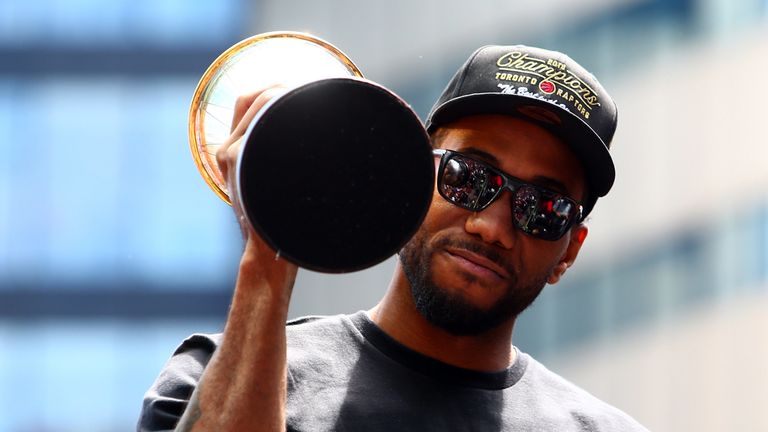Timberwolves owner Glen Taylor expressed confidence Thursday that the NBA franchise will remain in Minnesota after it is sold, responding to a federal lawsuit against him by one of his investors alleging breach of contract.
"As a policy, we do not comment on pending legal matters," Taylor said. "I stand by my prior statements and commitment to keeping the Timberwolves and Lynx in Minnesota."
The 80-year-old Taylor purchased the Timberwolves in 1994 for $88 million to keep them from moving to New Orleans. He told reporters when the negotiations with Lore and Rodriguez began that the franchise remaining in Minnesota was a condition of the sale.
"There was no use talking to them if they didn't agree to that," Taylor said in an April 10 interview with The Associated Press.
Orbach is the front man for Orbit Sports, which filed the lawsuit Wednesday in U.S. District Court in Minneapolis that was first reported by ESPN. The defendants are listed as Taylor, his investment company for the sports teams, and the Taylor Corp., the printing and creative services business based in North Mankato, Minnesota, that he built into a multibillion-dollar conglomerate.
Orbach, whose share of the clubs is larger than all of Taylor's other minority investors combined, first bought in to the Timberwolves and Lynx in 2016. Orbach was given "tag-along rights," which entitle minority partners to sell their stake in the event of a transfer of controlling ownership.
According to the complaint, Orbach's tag-along rights were triggered by the sale agreement, but Taylor has denied them. The plaintiff wrote that the deal with Lore and Rodriguez was "structured as a clumsy attempt to circumvent" the tag-along rights.
"Taylor not only ignored Orbit but also privately stated - directly contrary to his public statements - that he is not proposing to enter into a 'control sale' with Rodriguez and Lore at this time. Instead, Taylor is claiming that any 'control sale' will be years in the future," the lawsuit said.
Taylor, who also owns the WNBA's Minnesota Lynx recently finalised an agreement to sell the basketball clubs to e-commerce mogul Marc Lore and former baseball star Alex Rodriguez for $1.5bn. The deal would unfold incrementally, beginning this year with a 20 per cent purchase of Taylor's stake. Lore and Rodriguez would be on track to become majority owners for the 2023-24 seasons.
Taylor issued a statement through the team acknowledging the litigation from Meyer Orbach, a New Jersey real estate magnate whose ownership stake in the basketball clubs is about 17 per cent.
The complaint also accuses Taylor of misleading public statements about the contractual requirement that Lore and Rodriguez keep the Timberwolves in Minnesota. According to the language in the deal, the plaintiff wrote, the issue of relocating the team must be presented to an advisory board that cannot actually stop the new general partner from moving.
The City of Minneapolis, which owns Target Center, has an agreement with the team through 2035 that carries a $50m penalty for breaking the arena lease. The NBA's board of governors must also approve any sale or relocation of a club.
Taylor said in a recent interview with Minneapolis radio station WCCO that he believes the NBA would prevent a potential move of the Timberwolves to Seattle, which is likely to be the next city to get a team but would be more lucrative to the league as an expansion franchise. Las Vegas is another market assumed to be high on the league's list.

